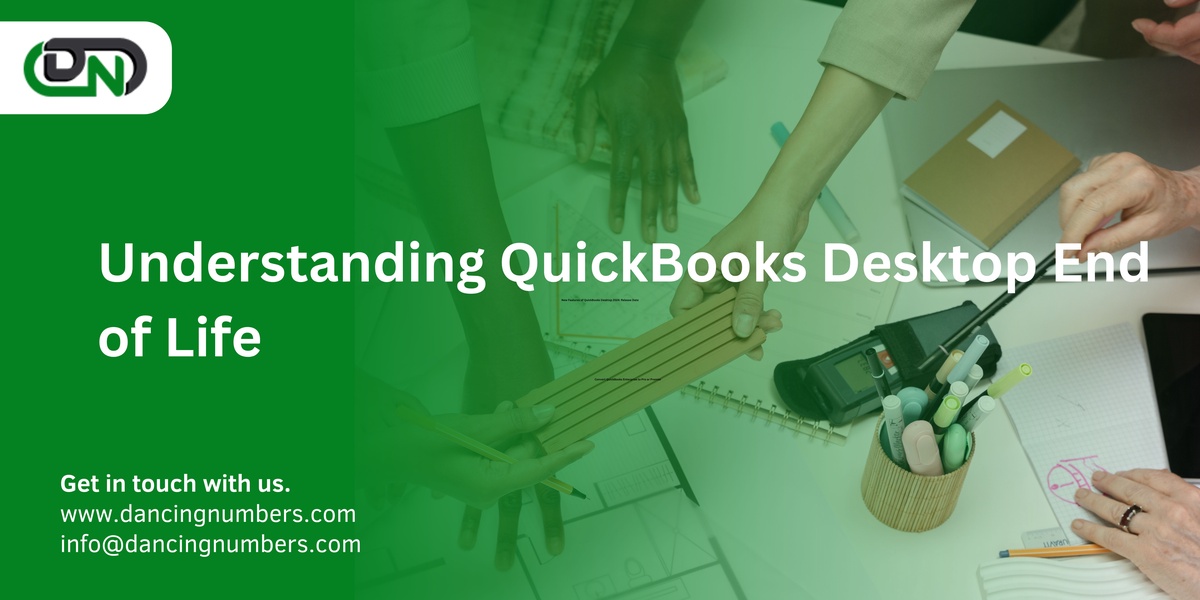In the world of accounting software, QuickBooks has long been a household name, offering businesses of all sizes powerful tools to manage their finances. However, as technology evolves and software advances, even the most beloved platforms must adapt or face obsolescence. Such is the case with QuickBooks Desktop, as Intuit, the company behind the software, has announced the end of life for this long-standing product.
Understanding the End of Life
QuickBooks Desktop End of Life marks the discontinuation of support, updates, and certain features for the desktop version of the software. This decision by Intuit comes as part of a broader shift towards cloud-based solutions and the ongoing development of QuickBooks Online, the web-based counterpart to QuickBooks Desktop.
For businesses still using QuickBooks Desktop, it's crucial to understand what this end of life means for their operations and to plan accordingly. While the software will continue to function, users will no longer receive critical updates, including security patches, bug fixes, and compliance updates. This can leave businesses vulnerable to security threats and regulatory issues, making it essential to transition to a supported platform.
Transitioning to QuickBooks Online
The natural successor to QuickBooks Desktop is QuickBooks Online, a cloud-based accounting solution that offers many of the same features and functionalities as its desktop counterpart. Transitioning to QuickBooks Online provides several benefits, including:
- Accessibility: QuickBooks Online allows users to access their financial data from anywhere with an internet connection, providing greater flexibility and convenience.
- Automatic Updates: With QuickBooks Online, updates are applied automatically, ensuring that users always have access to the latest features and security enhancements without the need for manual intervention.
- Scalability: QuickBooks Online is designed to grow with your business, offering scalable pricing plans and the ability to add or remove features as needed.
- Collaboration: QuickBooks Online facilitates collaboration among team members, allowing multiple users to access and work on the same data simultaneously.
- Integration: QuickBooks Online integrates seamlessly with a wide range of third-party apps and services, allowing businesses to customize their accounting software to suit their specific needs.
Planning Your Transition
Transitioning from QuickBooks Desktop to QuickBooks Online requires careful planning and preparation to ensure a smooth migration process. Here are some steps to consider:
- Evaluate Your Needs: Assess your current use of QuickBooks Desktop and identify any specific features or functionalities that are essential to your business operations.
- Choose the Right Plan: Explore the different pricing plans offered by QuickBooks Online and choose the one that best fits your needs and budget.
- Data Migration: Plan and execute the migration of your financial data from QuickBooks Desktop to QuickBooks Online. Intuit provides tools and resources to assist with this process, but depending on the complexity of your data, you may need to seek assistance from a professional.
- Training and Support: Provide training for your team members on how to use QuickBooks Online effectively. Intuit offers extensive training resources and support options to help users get up to speed with the new software.
- Testing and Troubleshooting: Before fully transitioning to QuickBooks Online, conduct thorough testing to ensure that all data has been migrated accurately and that the software is functioning as expected. Address any issues or discrepancies promptly to minimize disruption to your business operations.
Conclusion
While the QuickBooks desktop 2021 end of life may seem daunting, it also presents an opportunity for businesses to modernize their accounting processes and embrace the benefits of cloud-based software. By transitioning to QuickBooks Online, businesses can ensure continued access to essential features and support while positioning themselves for future growth and success. With careful planning and preparation, the transition can be a smooth and seamless experience, allowing businesses to focus on what they do best—running and growing their operations.


No comments yet